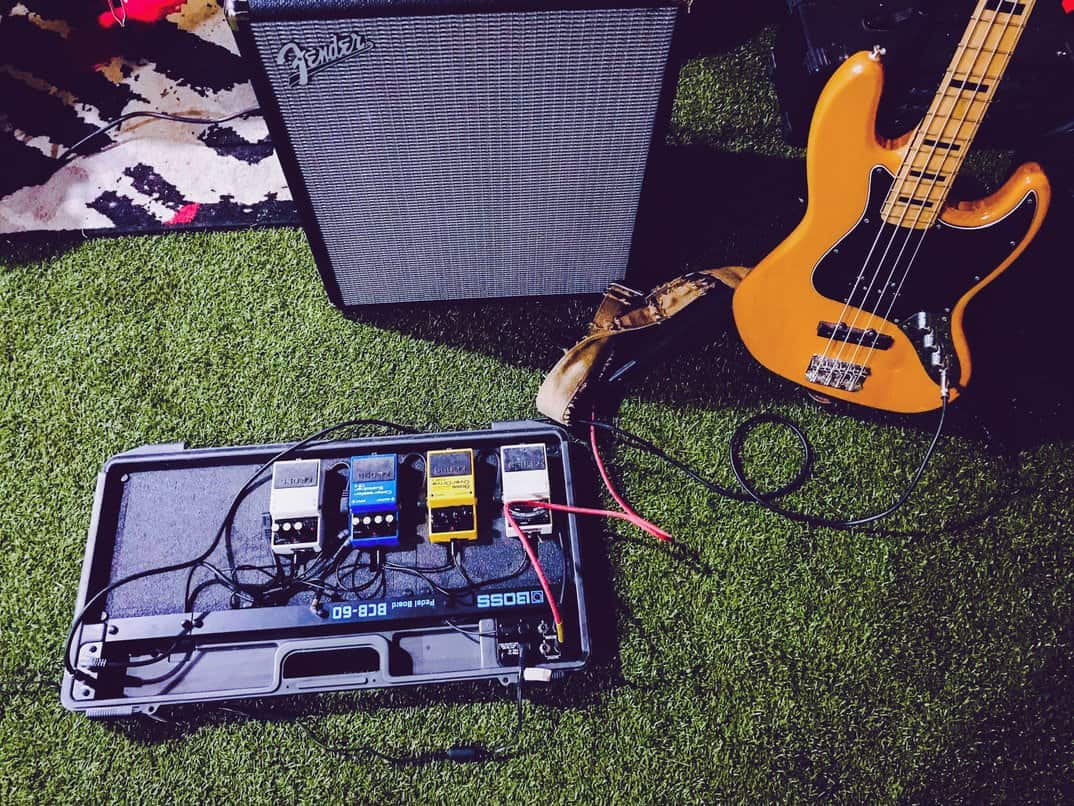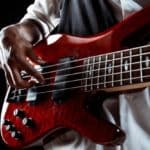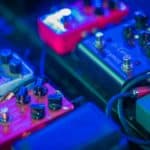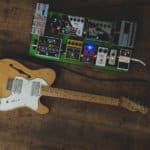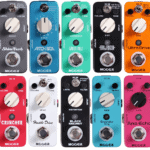Pedals and effects are doom for musicians and their wallets.
There are plenty of them, and each effect creates a unique sound.
Toying with them and experimenting a bit leads to some fascinating discoveries that could drastically improve your songs.
Pedals exist both for guitars and for bass guitars, each one made for achieving certain requirements.
So, there’s a question worth asking:
What happens if you use a bass pedal on a guitar? Will it work? Will it serve any purpose?
Bass pedals work on guitars too. The effect that the pedal provides will be the same either for guitar or bass. What is more, you won’t damage your guitar if you connect it to a bass pedal, neither in the short nor the long run. However, they might not sound as good as a dedicated guitar pedal.
Let’s find out the reasons why a bass pedal can work on a guitar despite being made for another instrument.
Will bass pedals work for guitar?
For the most part, a guitar with a bass pedal will sound great.
Generally, bass pedals and guitar pedals share the same effects, with little to no variations.
The difference lies in their settings.
Bass and guitar are two individual instruments. They work alike.
This means that each type of pedal is made to fit certain requirements. More specifically, to serve the frequency range of each instrument.
For example, bass pedals generate lower frequencies than guitar pedals.
This doesn’t mean that they wouldn’t work on a different instrument. It just means that they already come with a function by default.
Compare pedals to other objects outside music.
A cup, to be more exact.
A cup is made for coffee or tea, mainly.
Of course, nothing stops you from drinking water or soda out of it.
So, to sum up, if you are looking for a pedal for your guitar and you only find bass pedals, then take them! They will work well.
Can you damage a bass pedal if you use it with a guitar?
If you have already tried it and came here just to check that you didn’t ruin your gear, then you are lucky!
The good news is, bass pedals cannot damage guitars.
It is literally impossible.
Pedals simply process the signal coming from the instrument, apply the effect, and output the affected signal.
They don’t distinguish between bass, guitars, or keyboards.
At least, the majority of them.
Can you damage your amp if you play guitar with a bass pedal?
Guitar’s amps are not made to handle bass input.
Sure, they can work perfectly for a while, but in the end, the low frequencies of the bass or bass pedal may damage the guitar’s speakers.
A guitar amp is not built to control low ends at high volumes.
Now, one thing is to plug in a bass into a guitar amp and another to connect a bass pedal into a guitar amp.
The latter is less risky.
After all, it depends on the type of pedal you are dealing with.
Bass pedals that create very low frequencies that could harm your speakers if you play at high volumes.
If, for instance, you use octave pedals at high volumes, then you could damage your amp in the long run.
Fortunately, it takes some time until you ruin your gear.
This is in part because you will notice a serious change in the sound of the gear.
You will notice some rattling coming from the speaker, and you’ll realize there’s something wrong with it.
Don’t worry. If such a thing happens, you’ll be able to stop it before it is too late.
Would a bass pedal sound good with a guitar?
A bass pedal will definitely sound good with a guitar.
After all, guitar pedals and bass pedals haven’t got a huge contrast, and the effects tend to be the same for both instruments.
Sure enough, they have some differences too.
Are guitar and bass pedals the same?
As mentioned before, there’s a big similarity between guitar and bass pedals.
They share circuits, components, and tonal structures.
However, if there is one for each, then there must be a reason.
The main difference relies on the frequency range they interact with.
There are pedals that will work better on low frequencies (bass pedals), and others that simply cut them out, which makes them more suitable for guitars.
What is more, there are some pedals whose focus is on a specific area of the frequency range.
What does this mean?
Well, guitars and bass frequencies peak on different parts.
Guitars tend to peak in the mid-range and continue up to the high-end.
Bass guitars, on the other hand, peak in the low end and fall off in the mid-range.
Therefore, you’ll find pedals that focus solely on the mid-range, cutting out low frequencies, while others exclusively on the low-end.
Each one will function better on its original instrument.
Lastly, it is worth mentioning that some pedals don’t focus on any frequency range.
Those are the ones that function either on bass, guitars, microphones, etc.
Why would someone use a bass pedal with a guitar?
The world of music is colossal.
There are so many instruments, so many forms to create sounds.
There’s more than enough room for experimenting.
Therefore, lots of musicians enjoy becoming a kind of scientist: finding out new ways of creating music, trying different elements simultaneously, and seeing the results.
Playing guitar with a bass pedal exemplifies this point perfectly.
After all, you are combining two items that at first sight, have nothing to do with one another.
Who knows? Maybe you get a unique tone that otherwise you wouldn’t get.
What are common bass pedals that could be used with a guitar?
There’s an entire catalog of pedals and effects for you to create your music.
Here are some bass pedals that could work perfectly on guitars.
- Compressor: tone-shaping pedal that controls dynamic and volume range.
- Fuzz: have you ever heard a bass guitar with a fuzz effect? It sounds fantastic! It gives a pleasantly saturated tone that if it works on bass, then it could work on guitars as well.
- Octave pedal: it doubles your tone an octave higher. They are more commonly used for guitars than bass, so there wouldn’t be a problem using one of them (except for the amp issues mentioned earlier in the article).
- Synth pedal: some of these work perfectly for both instruments. Their functionality is to create an electronic sound that resembles organs and synthesizers.
- Overdrive: there are overdrives for bass too. They provide distorted sounds without resulting too noisy or unbearable.

Hello there, my name is Ramiro and I’ve been playing guitar for almost 20 years. I’m obsessed with everything gear-related and I thought it might be worth sharing it. From guitars, pedals, amps, and synths to studio gear and production tips, I hope you find what I post here useful, and I’ll try my best to keep it entertaining also.

